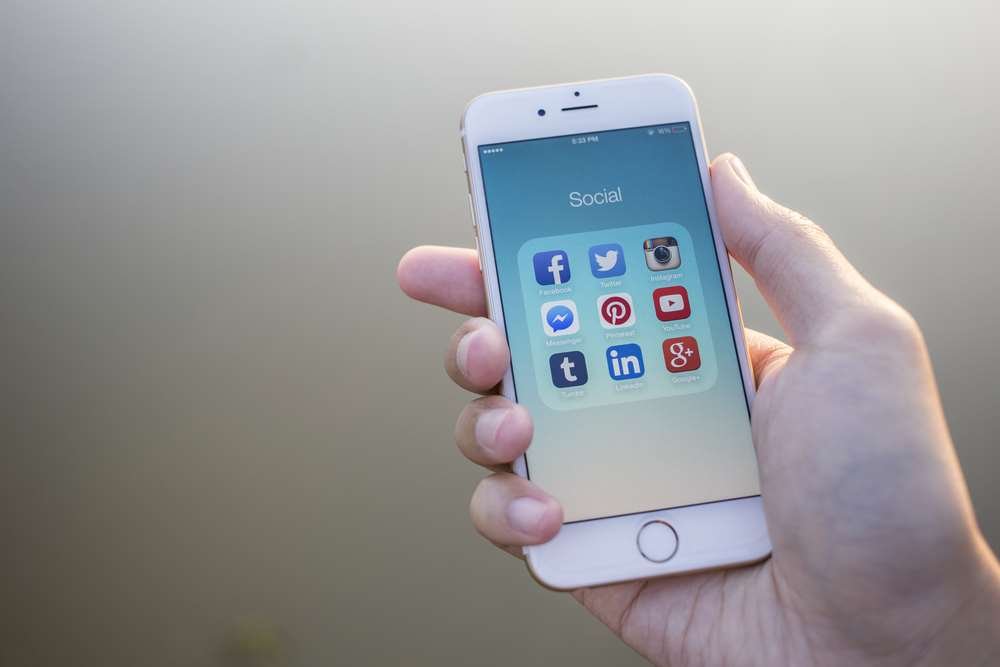Why Smartphones Hold The Key To A More Manageable Tax Season For Accountants
Published by Gbaf News
Posted on January 16, 2019
4 min readLast updated: January 21, 2026

Published by Gbaf News
Posted on January 16, 2019
4 min readLast updated: January 21, 2026

By Mike Page, Head of Product Management and Customer Experience, MyFirmsApp
Mike is Head of Product Management and Customer Experience strategy at MyFirmsApp, developers of the largest global App platform for accountants and bookkeepers. As a qualified accountant he appreciates the challenges faced by the profession in a world where always-on clients are demanding instant answers and he firmly believes that Apps can help put accountants at the heart of their clients’ mobile lives.
New research from psychologists at Nottingham Trent University and Germany’s University of Wurzburg shows that smartphones have become more important to our daily lives than neighbours, colleagues. flatmates and teachers. Only family, friends and pets rank higher than phones in terms of importance based on the findings of an online survey of 1,156 men and women aged from 15 to 83. Smartphones have become psychologically relevant entities accompanying their users throughout the day, always ready for tasks such as communicating with friends and family. To the owner, the smartphone is not mere technical equipment but rather a digital companion and because the medium seems to communicate with its owner, the research suggests that we unconsciously react in a way as if it was a human being.
Smartphones have long ceased to be mere technical equipment, becoming closely related to the fulfilment of fundamental human needs. They have taken on the role of digital companion and, in many cases, have become the replacement for a range of psychological processes typically confined to human relationships. In our ancestors’ world, social interactions and the processing of information were essential for survival and it was humans who were sending these social cues. Now, today’s electronic devices send similar signals by talking to us and this suggests that man is adopting technology in order to survive in the modern age.
Imagine an average day: Our phone wakes us in the morning and, before having our first coffee it provides us with messages or emails. While having breakfast it is our access to the world’s news. Furthermore, our phone then helps us to get through classes or meetings, reminds us of appointments, helps us navigate our way through foreign places, and so forth. For all questions big and small, our phone will help us. Moreover, and perhaps most importantly, our phone is our connection to our loved ones. Although our partner, family or friends are often close by, our phone somehow brings them closer to us. Because of our phone we can talk to them, send them messages, texts, pictures and videos. As a result we know what they are doing throughout the day and it feels like we are part of each other’s life.
This digital companion is already providing a vital connection to friends and family yet its’ potential use in the business environment remains surprisingly untapped. For accountants, the smartphone represents a way of alerting clients to relevant information that may affect them and they provide a ready alternative to email to ensure messages get directly to the recipient. Push notifications are messages that can be sent to the firm’s App users quickly, easily and in a way that grabs their attention. They pop up on the home screen of your mobile device and have a 93 percent open rate, which occurs, typically, within minutes of delivery.
Far more effective than email
By comparison, an email will generate a 4 percent open rate, if you are lucky. With 24 per cent of those surveyed in this new research admitting to using their phones for more than 3 and a half hours a day, advisers appear to be missing a trick as they now have the perfect opportunity to get straight to the home screen of their clients’ digital companions and what better time to start than in the run up to the Self Assessment deadline in January? Instead of battling on with unanswered emails that are frequently ignored or end up in the ‘trash’ folder, this method of messaging the client within the accountant’s App guarantees to appear on the home screen and to demand attention.
Using these psychologically relevant entities to engage with clients, especially during the tax season, represents the way forward for accountants looking for a more manageable approach to January. What else is capable of getting the attention of 65 percent of owners under 35 within five minutes of waking up?
Explore more articles in the Finance category
